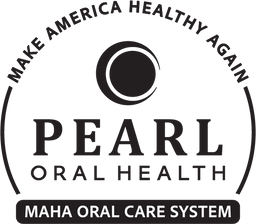The health of your tooth enamel plays a major role in the look and feel of your smile. You want to do everything you can to ensure that this crucial part of the tooth remains healthy. However, many people have a difficult time with something known as demineralization. This process can make it painful for you to eat and drink, and it makes it more likely that you will develop cavities in the future.
If you want to know more about how your teeth get demineralized and how to correct the problem, read my article on the Dentinal Fluid Transport System.
What Causes Demineralization?
Do you have chalky white spots on your teeth and can’t figure out what happened? These white spots typically appear when your teeth are demineralizing, or have been exposed to too much fluoride. It is a symptom that you are losing essential minerals from your tooth enamel, just beneath the surface of the tooth. Many people find that they also have more pain from hot and cold foods or pressure when their teeth are displaying demineralization.
Unfortunately, demineralization can lead to more serious problems than just increased sensitivity. When too many minerals are lost, cavities are more likely to form.
Keep in mind if your teeth are becoming demineralized, your skeletal matrix is being affected also.
Fortunately, there is a solution to these demineralized teeth. Your dentist can help you to get on the right track with remineralization strategies to alleviate some of your symptoms and prevent future damage. Let’s take a look at some of the easiest ways you can remineralize your teeth.
Silidyn Rejuvenate, provides the necessary mineral content required for the remineralization process. In our practice we recommend Concentrace Minerals along with Silidyn drops to help reverse the demineralization process caused by the lack of proper minerals.
Dry Mouth Rinses
Do you have dry mouth throughout the day? This might be an area that you can address with your dentist to help remineralize your teeth. Saliva plays a key role in restoring important minerals in your teeth. It contains both calcium and phosphate which can serve to strengthen the outside layer of your tooth. If your saliva production is low, use Xylitol and/or HOCl rinse, or Xylitol gum, or all three.
Increase Your Mineral and Probiotic Content
Along with the minerals noted above add two specific oral probiotics:
- Streptococcus salivarius K-12 is a species of spherical, gram-positive, facultative anaerobic bacteria that is both catalase and oxidase negative. S. salivarius colonizes (usually in chains) the oral cavity and upper respiratory tract of humans just a few hours after birth, making further exposure to the bacteria harmless in most circumstances.
- Streptococcus salivarius M-18 produce bacteria that prevent cavities and breaks-up dental plaque in the oral cavity. The BLIS M-18 bacteria derive from a specific S. Salivarius strain — Streptococcus salivarius. About two percent of the global population (people who rarely experience plaque or tooth decay) has enough of the Streptococcus salivarius necessary to make the M-18 peptides.
Drink More Water
Last but not least, preventing demineralization could be as easy as drinking a glass of water, thereby diluting the acid. Particularly if you do not have a chance to brush after eating acidic foods. While it may not do much to remineralize your teeth, it can slow down the process of demineralization. Sodas, coffees, and teas should be avoided, particularly if they are loaded with sugar.
Remineralizing Your Teeth
A demineralized tooth might stand out like a sore thumb in your smile. For other people, it may just be an uncomfortable, nagging pain when they consume hot or cold foods. Regardless of how your demineralization manifests itself, adding those essential minerals back in is important to prevent cavities from developing.
Fortunately, there are lots of tips and tricks that you can do with or without the help of your dentist to restore some balance to your smile!
Shop Silidyn Rejuvenate – improve your health from the inside out!


